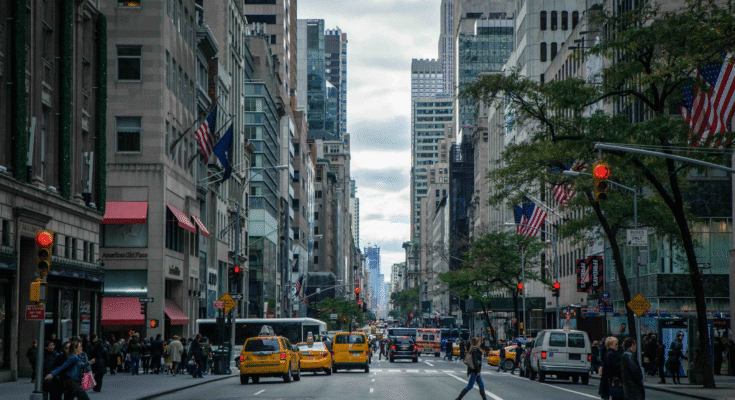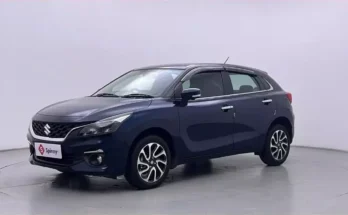Most people in Ruston probably haven’t looked at their auto insurance in years. The bill comes every month or every six months, maybe it goes up a little, and they just pay it. Nobody really wants to think about insurance until they need it. But that’s exactly how drivers end up paying way more than they should.
Louisiana insurance rates can be all over the place. One company might quote somebody $85 a month. Another wants $140 for the same exact coverage. It’s not like they’re making up numbers – they’ve all got their own way of calculating risk – but it means the price somebody pays depends a lot on where they’re getting quotes from.
The Legal Stuff Nobody Reads
Louisiana requires liability coverage. That’s $15,000 per person for injuries, $30,000 total per accident, and $25,000 for property damage. Those are the minimums just to keep a license plate legal. But anyone who’s dealt with medical bills or car repairs lately knows those numbers don’t go very far.
Totaling someone’s newer pickup? That property damage limit gets eaten up fast. Hospital visit after an accident? Fifteen grand doesn’t cover much. Most folks need higher limits unless they want to risk getting sued for the difference if they cause a bad wreck.
Then there’s collision and comprehensiveness. Collision pays for damage to the vehicle in an accident, doesn’t matter who caused it. Comprehensive covers the weird stuff – hail damage, stolen catalytic converters, hitting a deer on Highway 80. Both are optional unless there’s still a loan on the vehicle. Banks won’t let anyone skip those.
Older vehicles that aren’t worth much? Collision might not make sense. Paying $60 a month to insure a truck worth $3,000 doesn’t add up when the deductible is $1,000 anyway.
What Makes Ruston Different
Smaller towns usually get better rates than big cities. Less traffic, fewer accidents, lower theft rates. Ruston’s got that going for it compared to somewhere like Baton Rouge or Shreveport. But even within town, rates shift around based on neighborhoods and where the vehicle gets parked at night.
How much someone drives matters too. Commuting to Monroe every day for work racks up miles. More miles means more time on the road, more chances for something to go wrong. Insurance companies ask about annual mileage for a reason. They’re trying to figure out how much exposure there is.
Driving record plays into it big time. Speeding tickets, at-fault accidents, DUIs – all that stuff hangs around for years and jacks up rates. Someone with a clean record for five years gets way better deals than someone who had a wreck last year.
Age factors in too, especially for younger drivers. A 19-year-old pays a lot more than a 40-year-old, even with the same car and same record. The stats don’t lie – younger drivers crash more. Insurance companies price for that.
Actually Getting Quotes Without Losing Your Mind
Shopping for insurance is one of those tasks everyone knows they should do but keeps putting off. It takes time, and dealing with insurance stuff isn’t exactly fun. But we’re talking about potentially saving a few hundred bucks a year, sometimes more. That’s worth an hour or two.
The trick is keeping everything the same when getting quotes. Same coverage amounts, same deductibles, same everything. Otherwise it’s like comparing apples to oranges and the prices don’t mean anything. One quote might be cheaper because it’s got lower limits or a higher deductible, not because the company’s actually cheaper.
Most places let drivers get quotes online now. Fill out a form with basic info – vehicle details, driving history, what coverage is needed – and get numbers back. No phone calls required unless something looks good enough to dig deeper. Some sites pull quotes from multiple companies at once, which speeds things up. When searching for options on car insurance in Ruston LA residents can see what different providers are charging without spending half a day on it.
Discounts That Actually Save Money
Every insurance company has discounts. The problem is they don’t always spell them out clearly. Drivers have to know what exists and actually ask about it.
Bundling home and auto is probably the biggest one. Put both policies with the same company and they knock off a chunk, usually 15 or 20 percent. That’s real money. Insuring multiple vehicles on one policy works the same way – multi-car discount drops the per-vehicle cost.
Clean driving record for three or five years? That’s worth a discount at most places. Good grades for students under 25 can save something too. Some companies offer deals for taking a defensive driving course, though that usually means sitting through a class for a few hours.
There are these usage-based programs now where an app tracks driving habits. Drive carefully, don’t speed, avoid hard braking, and the rate goes down. Some people don’t like being tracked. Others don’t mind and end up saving. Just depends on how someone feels about it.
Paying the whole premium at once instead of monthly installments sometimes gets a discount. Not everyone’s got that kind of cash sitting around, but if it’s doable, could be worth checking how much it saves.
The Deductible Game
Deductibles are that amount coming out of pocket before insurance pays anything. Common choices are $250, $500, $1,000, maybe higher. Lower deductible means higher monthly payment. Higher deductible brings the monthly cost down but means more cash needed if there’s a claim.
Someone with money saved up might go with a high deductible to keep monthly costs low. Someone barely scraping by might need a lower deductible even if it costs more per month. There’s no wrong answer, just different situations and comfort levels.
Worth playing with the numbers during quoting to see how much the payment changes. Sometimes jumping from $500 to $1,000 only saves like eight bucks a month. Not worth the extra risk. Other times it’s forty bucks. Might be worth thinking about then.
Stuff People Forget About
Uninsured motorist coverage is something a lot of folks skip without realizing what it does. Plenty of drivers around Louisiana don’t have insurance or barely have the minimums. Someone gets hit by an uninsured driver and suddenly there’s a problem.
This coverage fills that gap.
Medical payments coverage handles medical bills after an accident no matter who was at fault. Health insurance might cover some of it, but there’s deductibles and copays. This just makes life easier when dealing with that stuff.
Rental car coverage is cheap to add, maybe a few bucks a month. Vehicle’s in the shop for two weeks after an accident? This pays for a rental. Without it, that’s coming out of pocket or borrowing someone else’s car.
When to Look Around Again
Insurance isn’t a one-and-done thing. What made sense three years ago might not make sense now. Rates change, life situations change, driving records improve.
Good idea to check prices every year or two, especially when the renewal notice shows up. Doesn’t mean switching every time, but at least knowing what else is out there prevents overpaying out of laziness. Sometimes the current company is still the best deal. Sometimes there’s something way better.
Big life stuff is a good reason to shop around too. Paid off the car loan? Maybe drop collision and comprehensive if the vehicle’s old. Got married? Rates usually go down. Added a teenager to the policy? Rates definitely go up, but different companies handle that differently. Moving to a different part of town can change things too.
Sorting Through the Mess
Louisiana’s got plenty of insurance options, which sounds great until someone has to actually compare them all. But that’s the market. More competition means better chances of finding a good deal, just takes effort to find it.
The whole thing comes down to knowing what coverage makes sense, getting multiple quotes to see who’s competitive, and making sure every possible discount gets applied. Insurance companies aren’t calling up customers to offer them better deals. People have to go find those deals themselves.


